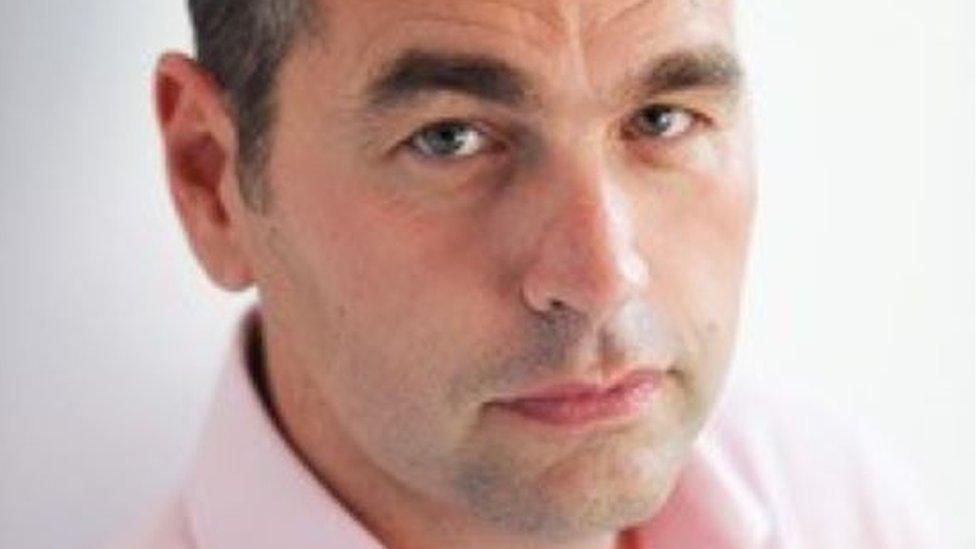Somerset's teachers transforming a "weak" education system
- Published
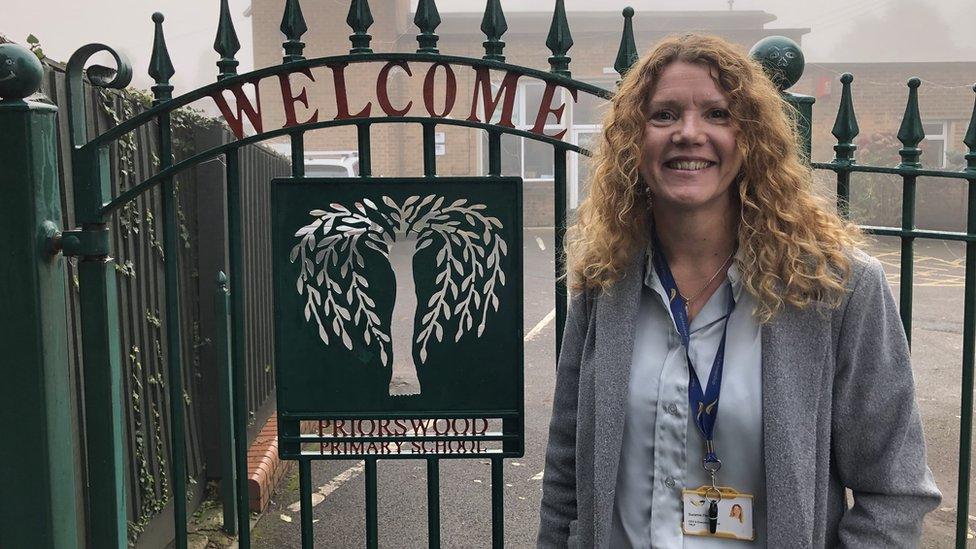
Suzanne Flack CEO of Redstart Learning Partnership leads a trust of 10 Somerset schools
Last month a damning report labelled Somerset "one of the weakest areas nationally" for its educational outcomes, and described a "very weak" performance from early years to GCSEs. While experts say this is linked to "chronic underfunding", it has been tough reading for the county's teachers. I've been hearing about the work they are already doing to turn that around.
Investing in teachers
Provisional data , externalfor 2022 GCSE results showed Somerset's pupils were about 4% below the national average for students passing maths and English, which the council report called "very poor".
The Blue School in Wells, opened in 1641, is Somerset's largest state school with 1,450 students age 11-18, and gets some of the best GCSE results in the county.
It is Somerset's only Regional Research School, which means it gets government funding to share best practice in teaching to its staff and other schools across the south west.
Mark Woodlock is head of the Blue School and also Chair of Somerset Association of Secondary Heads.
He believes the main driver of change inside schools is the quality of teaching.
"If we improve the quality of teaching then we can improve the outcomes for students, and improving outcomes for students improves their life chances," he said.
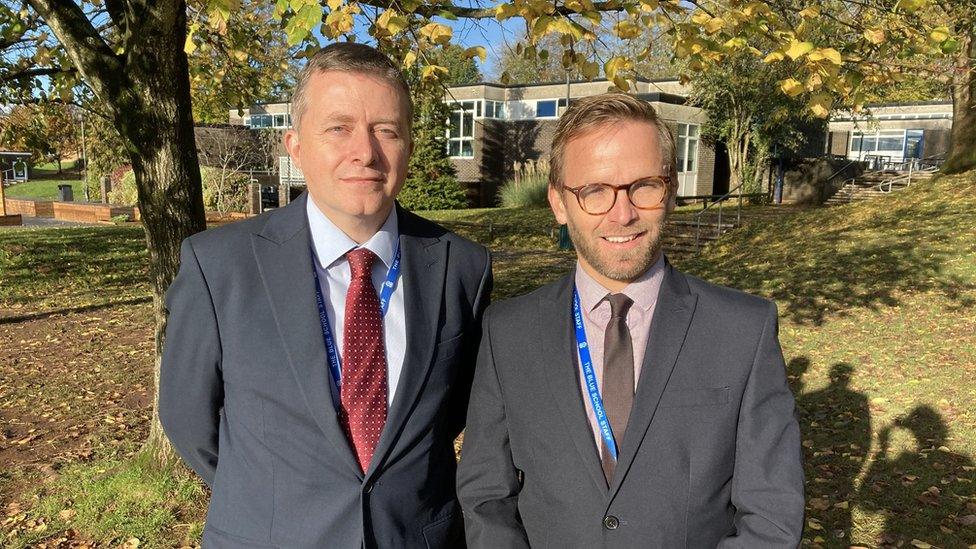
Mark Woodlock and Tom Colquhoun lead Somerset's only Regional Research School, in Wells
"If you were to show a teacher something that would really make a difference inside their classroom they'd bite your hand off.
"It's been tremendous to see how staff have taken it on board, because every teacher loves 'the next best idea'."
The model the Blue School uses is grouping teachers together with mentor teachers who can model and advise on classroom techniques.
Assistant head Tom Colquhoun said: "Teachers and school leaders have never been more stretched - that's an even bigger case for being evidence-informed in your practice.
"We need to be asking that question: what's the most effective and efficient [method] with the time and energy and resource that we've got?"
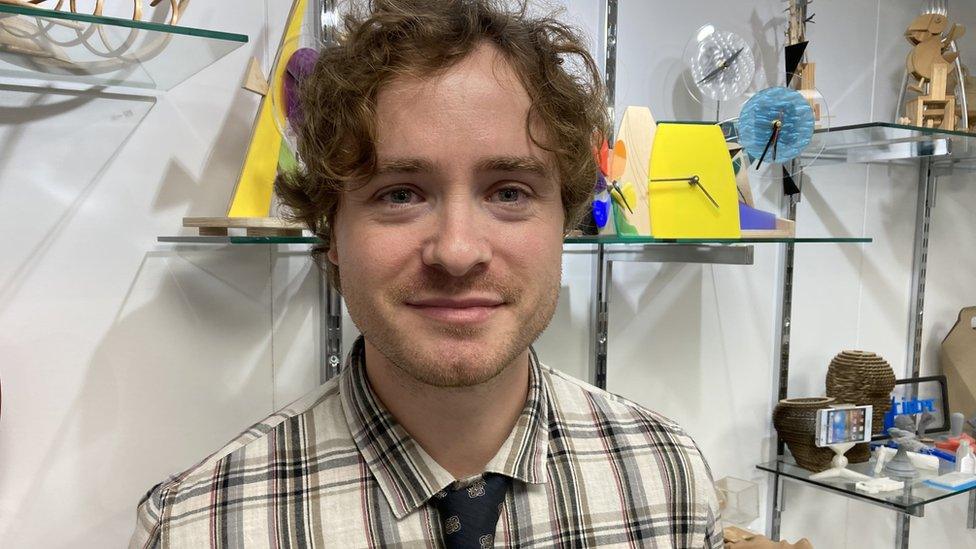
Grant Davies is a design technology teacher at Wells Blue School who mentors other teachers
Improving from 'inadequate'
Somerset is now in the top 10 local authorities nationally for the number of Ofsted inadequate-rated schools.
Priorswood Primary School, in a deprived part of Taunton, was rated inadequate by Ofsted in 2017.
It then joined the Redstart Learning Partnership and the school said it made big improvements.
They were awaiting the outcome of a recent Ofsted inspection when I visited but their faces suggested it would be a positive report.
Carly Ellis, the headteacher of Priorswood since 2019, said the school now has a waiting list of children wanting to join their reception class.
"We've been on quite a journey with our behaviour - and it doesn't happen by chance," said Mrs Ellis.
"The behaviour when I got here wasn't something you would like to talk about, but it's now very calm and purposeful and the staff work very much as a team with the children.
"The children are expected to say 'good morning' and speak correctly," she added.
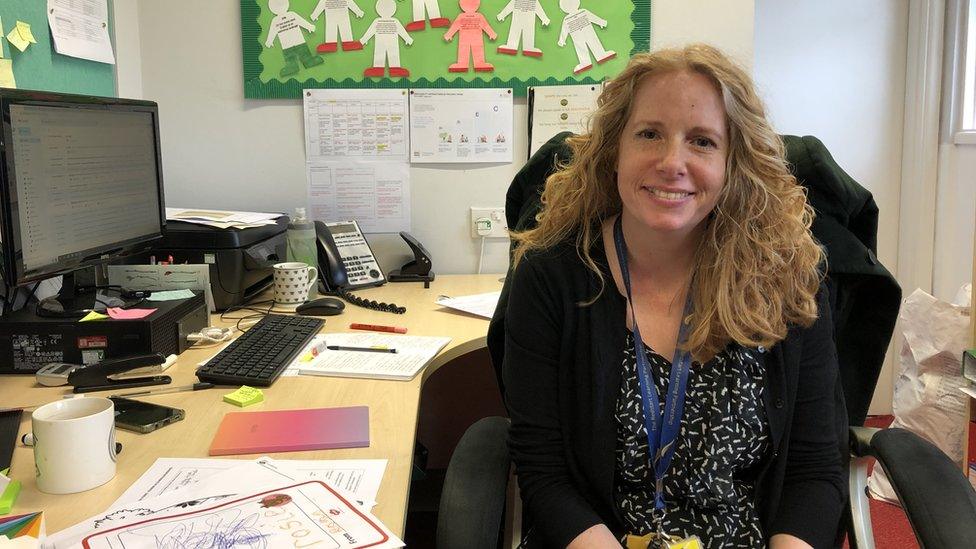
Carly Ellis has led Priorswood Primary's improvement after it was rated 'inadequate'
Mrs Ellis has also worked to stabilise previously high staff turnover by "creating a nice working environment and a supportive one."
"It's not easy teaching in a school similar to this; it's hard work. You have to really want to do the best for the children, to be here - and stay here."
Strength in numbers
Being part of a group of schools, known as a multi-academy trust, is seen as one way that schools can get stronger.
Suzanne Flack is Chief Executive of Redstart Learning Partnership, a trust of 10 Somerset primary schools including Priorswood.
She said schools across the country have noticed young children's language development is weaker than it was before the Covid pandemic, as they had limited social opportunities as babies.
"One of the things we've been able to do as an organisation is look at how we're teaching reading and how we're teaching the children diverse vocabulary and really upskilling them and trying to get them to catch up...and it's had such a positive impact," Mrs Flack said.
"Everything we do across the trust is about the children - and everything we do has to add value to the children.
"All schools are facing challenges with recruitment, with finances, with energy costs - it's no different in the education sector as with anywhere else.
"We've built a central team so our schools can focus on teaching and learning and we've got people looking at heating, roofing, those sort of things that one school probably couldn't do on their own."
They are also able to share specialists across the trust such as in behaviour or language development.
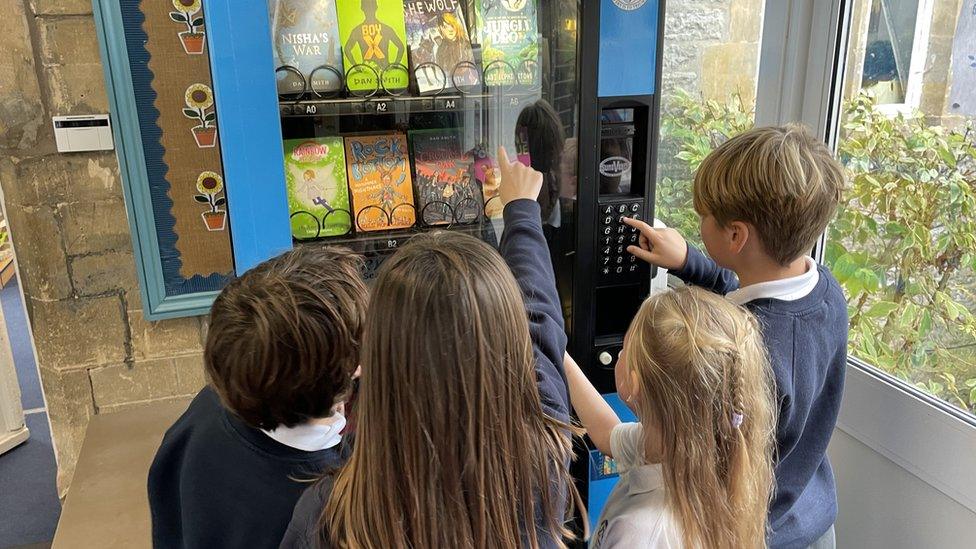
A vending machine full of books has been installed at a primary school near Glastonbury to inspire children to reach their reading targets
A more modest project was at West Pennard Primary School where they installed a vending machine full of books. Students earn a token to cash in for a book, if they reach their termly reading target.
"A few were disappointed at not finding so many chocolate bars in there! But they do find the reward of a book that they can keep and cherish at home as a real way into reading so it does work for us," said headteacher Tony Wheat.
A Department for Education spokesperson said: "We understand the challenges facing schools driven by high inflation.
"That is why we are investing an extra £2 billion into our schools next year and the year after.
"This will be the highest real terms spending on schools in history totalling £57.3 billion by 2024/25."
Of this nearly £5 billion is earmarked for tutoring, training for teachers and early years practitioners and additional funding for schools.

Follow BBC West on Facebook, external, Twitter, external and Instagram, external. Send your story ideas to: bristol@bbc.co.uk , external
- Published10 November 2022
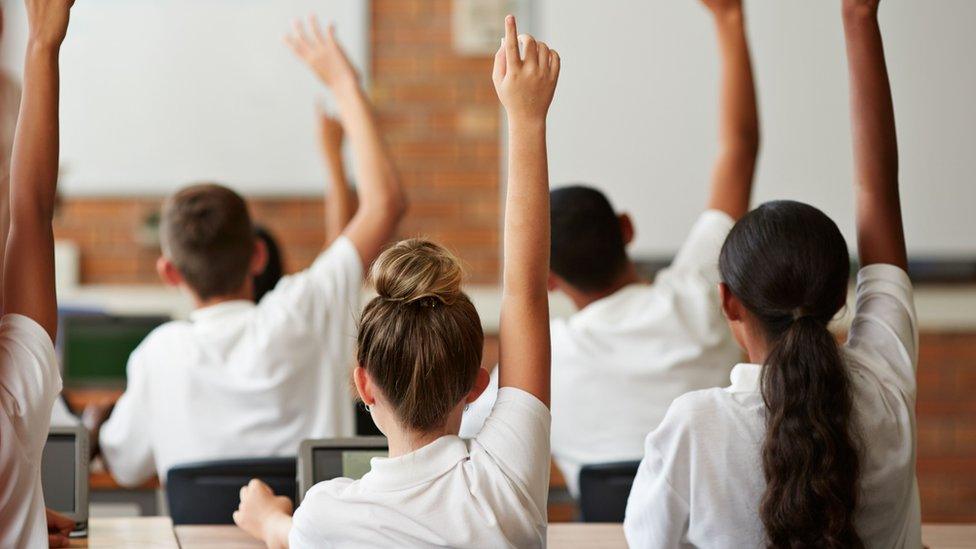
- Published7 September 2022
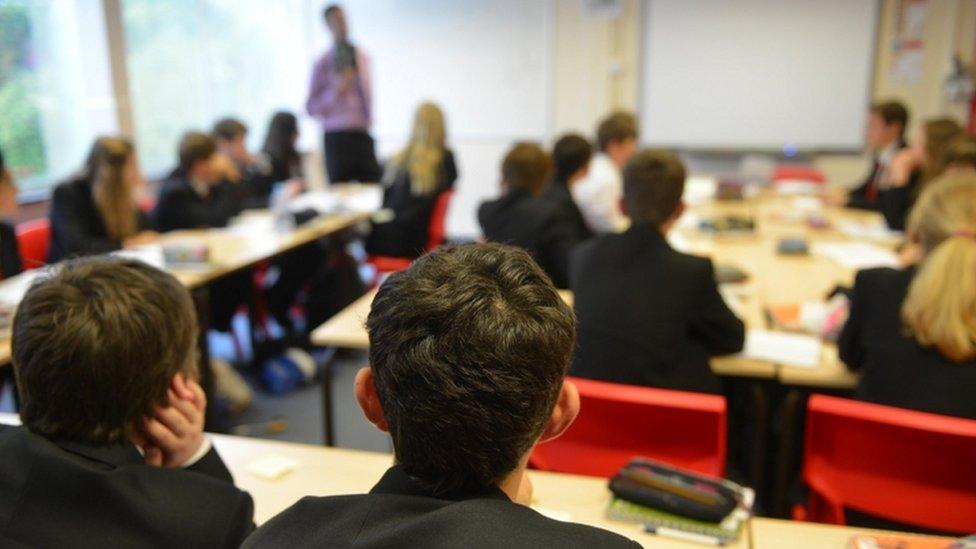
- Published22 August 2022
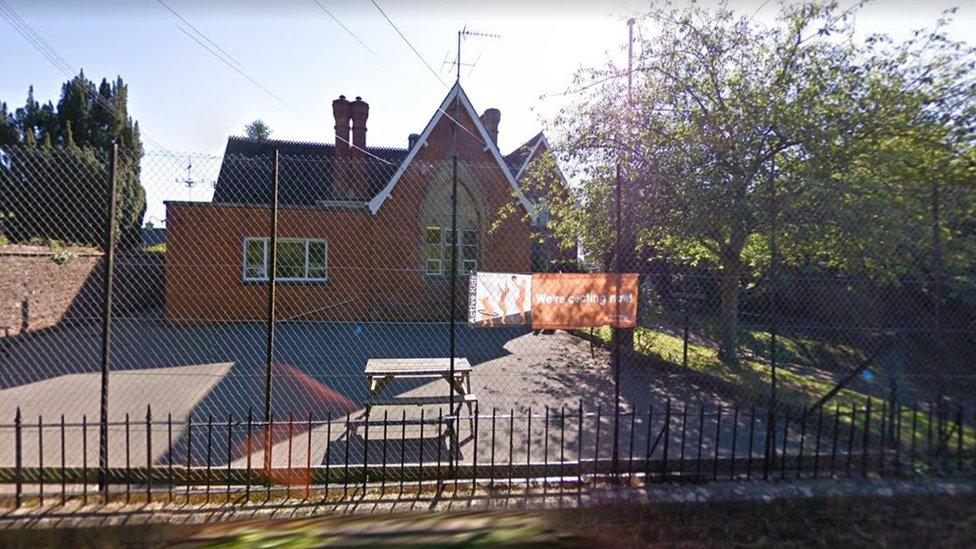
- Published2 February 2022
